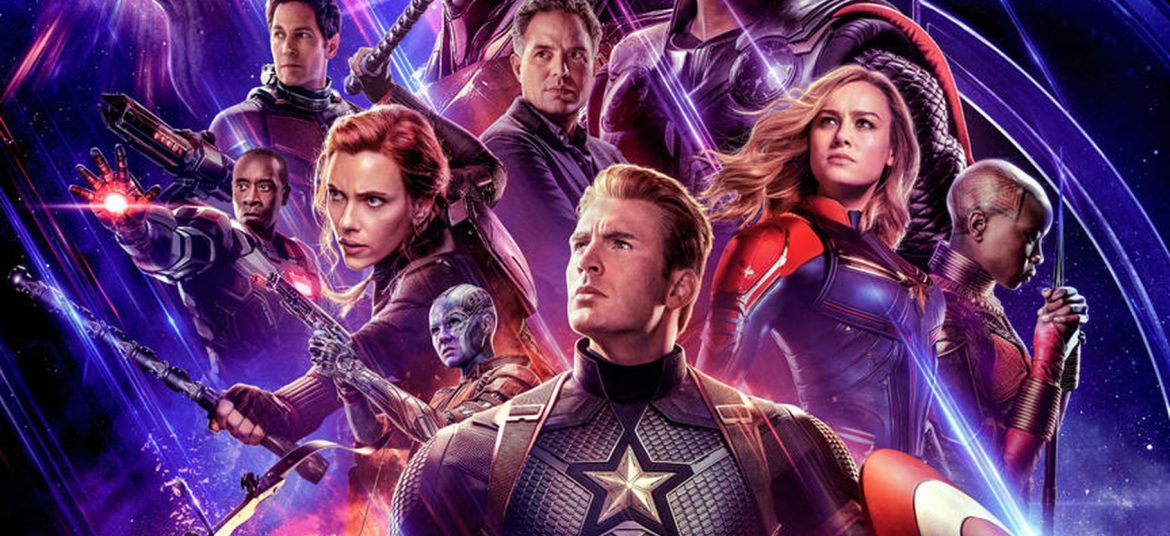TL;DR
Avengers: Endgame is an emotional powerhouse, delivering incredible performances, especially from Chris Hemsworth and Robert Downey Jr., and boasting breathtakingly epic battles. While the film excels in its emotional depth and humor, its time travel logic gets a bit messy and can be distracting, with some plot contrivances and character introductions feeling a bit forced. Despite these minor hiccups, it’s a magnificent and essential cinematic event that caps off a decade of storytelling with overwhelming spectacle and heart. Ready to see if the highs outweigh the lows? Dive into the full review for all the details.
It had been a while since I approached a screening with genuine anticipation. Would Avengers: Endgame satisfy the immense expectations surrounding it? As the lights dimmed and the film began, it became apparent from the outset that this was going to be a remarkable cinematic experience.
Following Thanos’s devastating snap in Avengers: Infinity War, half of all life in the universe has been eradicated. The surviving Avengers regroup to attempt to rectify the situation. This endeavor quickly proves to be significantly more challenging and perilous than initially anticipated. The return of Ant-man (Paul Rudd) provides a crucial spark of hope – a time heist.
In preparation for Avengers: Endgame, I rewatched all preceding MCU films. This marathon viewing required considerable focus, and even with the events fresh in my mind, certain aspects of Endgame prompted further reflection. Let’s begin with the film’s strengths:
The performances are exceptional. While previous films contained emotional scenes, Avengers: Endgame delivers emotional depth on an entirely different level. I found myself more invested than in any previous Marvel film. Directors Anthony and Joe Russo also maintain excellent control of the humor. Several scenes featuring Thor (Chris Hemsworth) are genuinely hilarious; under less skillful direction, they could have easily fallen flat (cf. Thor: Ragnarök // the editor). Hemsworth is a major source of humor in Endgame, while also delivering one of the most emotionally resonant performances, showcasing incredible nuance that merits recognition. I will refrain from specifying the context to avoid significant spoilers. Ant-man (Paul Rudd) was absent from Infinity War, an absence explained in Ant-man and The Wasp. His presence in Avengers: Endgame, however, more than compensates. Rudd’s casting is perfect, embodying the “everyman” perspective through which the audience experiences the events.
Another character absent from Infinity War is Hawkeye (Jeremy Renner). Endgame clarifies his absence, and his storyline is an emotional journey where his friendship with Black Widow (Scarlett Johansson) plays a critical role. And then, of course, the epic battles. Avengers: Endgame surpasses all prior battles in scope and the number of characters involved. Even Ready Player One is eclipsed in terms of sheer spectacle. The pacing is well-managed; Avengers: Endgame utilizes its runtime effectively without feeling protracted or rushed. I occasionally found myself wanting more detail on certain plot points; for me, the film could have benefited from an additional half-hour. To summarize, the strengths of Avengers: Endgame are consistently impressive, although some aspects are less successful…
It’s not a significant spoiler to reveal that Endgame incorporates the concept of altering the past, a premise evident in the trailer. Time travel is a well-established trope; H.G. Wells penned The Time Machine in 1895. Since then, countless films, TV series, books, comics, and video games have explored the theme of time travel. Viewers have developed certain expectations regarding the rules of time travel, and Avengers: Endgame largely disregards these conventions. Bruce Banner (Mark Ruffalo) briefly explains that established understandings of time travel, as depicted in popular culture, are inaccurate. However, Avengers: Endgame’s time travel logic feels more like convenient writing than a genuinely innovative approach (drawing on quantum physics theories, a concept explored previously, including in the interesting film Frequency). The time travel element becomes convoluted and illogical, proving distracting. Furthermore, several unexplained character disappearances and reappearances occur in Endgame, prompting questions and reinforcing the desire for more explanatory context. Finally, Avengers: Endgame faces an additional challenge in the form of Captain Marvel.
Her immense power would logically dictate her constant involvement in all Avengers missions, potentially preventing the initial conflict with Thanos (Josh Brolin). Consequently, the screenwriters contrive reasons for her to undertake other “important” missions, allowing the remaining characters to participate in the plot. However, any strategist would prioritize her inclusion on the team at all times. In addition, certain scenes lack subtlety, with one sequence, in particular, feeling heavy-handed. This is unfortunate because greater finesse could have elevated the scene significantly.
I must also acknowledge Robert Downey, J.r., who anchors a significant portion of the film. It’s remarkable to consider the epic journey he and his character have undertaken since the first Iron Man, culminating in a 22-film Marvel saga spanning over a decade. Even Chris Evans’ Captain America, a character I sometimes find challenging, delivers a strong performance.
In conclusion, assigning a definitive rating to this film proves difficult. Certain sequences are masterful, while others are less so. I’ve only scratched the surface of the film’s strengths and weaknesses. Ultimately, I must rely on my overall feeling, which is that this is a magnificent and epic film, surpassing even the Lord of the Rings trilogy. My viewing companion, Christian, and I experienced a range of emotions, from laughter to tears. Avengers: Endgame, despite its flaws, is an essential cinematic experience.

